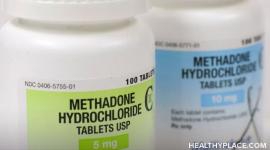Opioids vs. Opiates: What’s the Difference?

Opioids and opiates: both are common terms for a specific class of drugs. They refer to drugs, either natural or man-made, that have a painkilling and pleasure-inducing effect on the brain and body. Because the general meaning is the same, the terms opioids and opiates are often used interchangeably.
There isn’t a simple answer to the opioids vs opiates debate. Some medical professionals differentiate between the terms. Others do not, or if they do acknowledge a difference in meaning, they think it doesn’t matter because the end result of opioids, opiates use is the same: decreased pain, increased pleasure, and high risk of dependence and addiction.
The term opioid is more global than the term opiate. All opiates are opioids. Not all opioids, however, are opiates. The technical difference relates to two concepts:
- The source of the drug
- The precise effect the drug has on the body
Opioids, Opiates: Similarities
The reason these two terms are so often used interchangeably is that they are similar in nature. They’re classified as opiates because of what they do.
In medical terms, an opioid is any substance that binds to the opiate receptor sites throughout the body’s central nervous system and digestive system. Once they’ve attached to these receptors, the body no longer needs to produce its own opiates, the endorphins, endomorphins, enkephalins, and dynorphins.
The result of the attachment to the opiate receptors is the same:
- Decreased pain
- Increased pleasure
- Slowed breathing
Opioids also affect body systems like the circulatory, immune, endocrine, and reproductive systems.
Both terms—opioids, opiates—refer to drugs that act this way in the body. Some say that there’s no need to differentiate. Others speak of a difference. While they are subtle and not always viewed as important, there are minor differences between opioids and opiates.
Opiates vs Opioids: The Meaning of Opiates
Technically, opiates are natural. They are alkaloids, substances derived directly from opium obtained from the opium poppy plant.
Examples of opiates include
- Morphine
- Codeine
- Opium
- Thebaine
Opioids vs Opiates: The Meaning of Opioids
While opiates are natural, opioids are not. They are created by people, by either combining parts of the opium plant with man-made ingredients (semi-synthetic opioids) or by making them without any naturally derived ingredients (synthetic opioids).
A few examples of opioid drugs include:
Opioids, by definition, bind to the brain and body’s opioid receptors. There is a subtle, and quite technical, difference between where they attach that sometimes is used to differentiate between an opiate and an opioid.
The body has four different types of opioid receptors that all do slightly different things. Because they’re either partially or fully synthetic, opioids can be engineered and manipulated in a way that natural opiates can’t. They can be designed to be stronger or more sedating, for example.
Because there is no official consensus on whether or not there is a significant difference between an opiate and an opioid, the opioids vs opiates debate isn’t a heated issue. Opioid drugs, whether natural opiates or synthetic opioids, produce the opioid effect in the body, a euphoric, dream-like state of reduced pain and slowed breathing as well as other negative side-effects. It is the end result rather than the exact terminology that is important.
APA Reference
Peterson, T.
(2021, December 16). Opioids vs. Opiates: What’s the Difference?, HealthyPlace. Retrieved
on 2026, March 5 from https://www.healthyplace.com/addictions/opioid-addiction/opioids-vs-opiates-whats-the-difference


